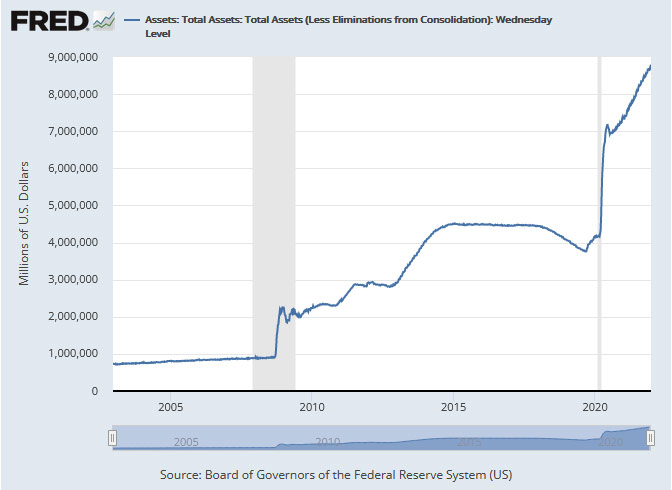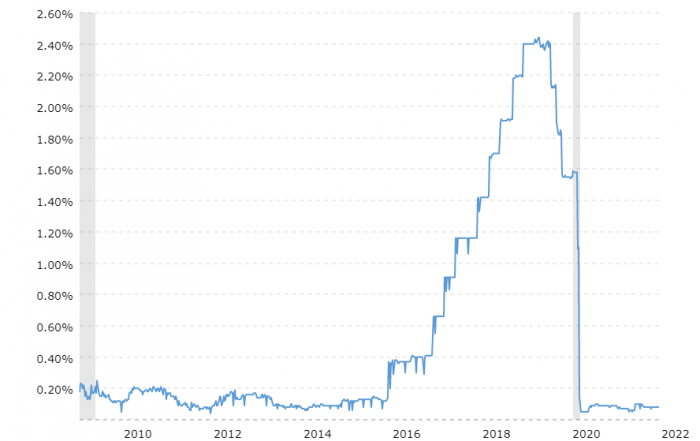Why Retiring In 2022 Could Be the Worst Decision of Your Life
 Bullion.Directory precious metals analysis 29 December, 2021
Bullion.Directory precious metals analysis 29 December, 2021
By Peter Reagan
Financial Market Strategist at Birch Gold Group
Ron Surz is an industry veteran with a niche focus on baby boomers (Americans born 1946-1964). Surz has managed target date funds for 401(k) plans since 2008. He recently issued a warning to prospective retirees:
This is a perilous time. There has never been a worse time to retire. We’d be really lucky if the baby boomers made it through the decade without suffering a big market loss.
According to one report from the Insured Retirement Institute that focused entirely on the baby boomer generation, Surz might be right:
Only 55 percent of boomers have any money saved for retirement, and almost one-half of the 45 percent who do not have retirement savings did have savings at one time.
According to The Balance: “For those with something saved, the median balance for those born between 1948 and 1953 was $290,000. For those born between 1954 and 1959, they had saved around $209,000.”
That’s just not very much. Using the popular 4% rule for retirement withdrawals, that equates to about $12,000 a year in income. When added to the average annual Social Security benefit of $18,660, that brings the total to a rather unimpressive $30,660.
To sum it up about 45% of boomers haven’t saved at all, and even if they have, there doesn’t seem to be much room for a risky retirement allocation in today’s market.
So Surz’s warning seems entirely appropriate.
Unfortunately, in his view, the boomer retirement situation is even more dire.
5 reasons traditional retirement advice is wrong
When asked about how we’ve reached this “retirement crisis,” Surz went on to explain 5 main reasons why. We’ll expand on each one as appropriate:
1) Interest rates have never been lower. That’s bad because people who want to save can’t be safe and make money — you’ve got to give up returns on your investments. Bonds have never been riskier; the duration has never been higher. So you’re taking a lot of risk to own bonds for very little return.
He’s certainly right about this. All the traditional “conservative” assets like savings accounts, CDs, money market funds, even government bond and corporate bonds (including junk bonds!) offer a negative yield after inflation.
In the 13 years since the 2008 financial crisis, interest rates have been near zero for all but an all-too-brief stretch between. You can see the last decade or so on the chart below:
Rates this low don’t make sense. Why lock in an after-inflation loss? Worse, there’s not much room for to offer a good return on investment, even when the next crisis hits.2) Stock prices have never been higher. That’s ugly too.
According to the latest check on the Buffet Indicator, stocks are valued 215% higher than GDP. Any number over 125% is a warning. At some point, that bubble will burst, making a risky situation even worse for retirement savers thinking about retirement.
3) We’ve never, ever printed so much money — not even close [for QE, COVID relief, infrastructure, etc.]
The official tally for the Fed balance sheet isn’t looking too healthy, and you can see it for yourself on the line graph from the St. Louis Fed below. Take special note of the amount added since 2020:

More than half of all dollars in circulation were printed since 2020. That’s simply astonishing. It’s no wonder we’re seeing forty-year high inflation.
The Fed’s balance sheet has grown by leaps and bounds since the 2008 crisis, and ongoing high (or even rising) inflation would make retiring in 2022 a mistake.
4) The wealth divide has never been larger. A lot of the money for quantitative easing went to rich people! The wealth divide is about social unrest — what we see on the news every day.
We’ve covered this in the past. See Wolf Richter’s wealth disparity monitor for details.
5) We’ve never had so many people in the Risk Zone simultaneously.
The “Risk Zone” that Surz mentioned is the five- to 10-year period that bookends the years before and after your actual retirement date. The major concern has to do with “sequence risk,” or being confronted with a steep market downturn early on in retirement that forces retirees to draw down their savings at the worst possible time (after stock prices have cratered).
Thanks to out of control inflation, holding cash-like to avoid financial ruin during a market correction won’t be as safe as it once might have been.
Surz certainly gives us retirement savers a lot to think about. But the main question to ponder is: What can you do now to make your “risk zone” less risky?
Consider how safe your safe haven really is
With inflation transitioning from “on the rise” to becoming a crisis, your asset allocation is something you might want to examine closely.
Surz thinks you should at least “examine the risk you’re taking,” and to consider shifting to a safer approach. Right now, he defines investing safely as:
Treasury Inflation Protected Securities — TIPS — precious metals, maybe even cryptocurrencies, commodities, farmland.
It is quite possible that at some point, there won’t be any choice but to move out of cash and into “safe haven” assets like physical gold and silver, or another inflation-resistent investment.
Regardless of what you choose, remember one thing: Diversifying your savings into your safe-haven investment of choice is best done now, before the fire alarm goes off. Before everyone else is panicking toward the exits. Those who choose to take their chances standing with the herd risk getting trampled.
It’s far more prudent to prepare yourself and your family’s financial future a month or even a year too early than a single day too late.
Peter Reagan

Peter Reagan is a financial market strategist at Birch Gold Group, one of America’s leading precious metals dealers, specializing in providing gold IRAs and retirement-focused precious metals portfolios.
Peter’s in-depth analysis and commentary is published across major investment portals, news channels, popular US conservative websites and most frequently on Birch Gold Group’s own website.
This article was originally published here













 Material provided on the Bullion.Directory website is strictly for informational purposes only. The content is developed from sources believed to be providing accurate information. No information on this website is intended as investment, tax or legal advice and must not be relied upon as such. Please consult legal or tax professionals for specific information regarding your individual situation. Precious metals carry risk and investors requiring advice should always consult a properly qualified advisor. Bullion.Directory, it's staff or affiliates do not accept any liability for loss, damages, or loss of profit resulting from readers investment decisions.
Material provided on the Bullion.Directory website is strictly for informational purposes only. The content is developed from sources believed to be providing accurate information. No information on this website is intended as investment, tax or legal advice and must not be relied upon as such. Please consult legal or tax professionals for specific information regarding your individual situation. Precious metals carry risk and investors requiring advice should always consult a properly qualified advisor. Bullion.Directory, it's staff or affiliates do not accept any liability for loss, damages, or loss of profit resulting from readers investment decisions.

Leave a Reply